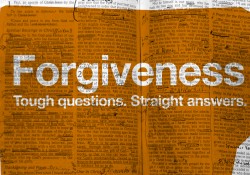Do you actually make sure that Sunday (the Sabbath) is a day of rest?
What does the Sabbath or Day of Rest mean to you? Do you still toil in your labor? Do you take timeout to worship? Do you still go on living life as you do every other day?
Growing up my father took this Commandment very literally – he never missed a day of mass and did absolutely nothing else. And when I say nothing else, I mean it. He wouldn’t as much as pick up a screwdriver if a bolt had come loose on something important, it always had to wait until Monday.
Why do you think the Day of Rest is so important? Important enough God placed it rather high in the list of the Ten Commandments? Knowing God’s importance on a Day of Rest, how does that change your perspective?







